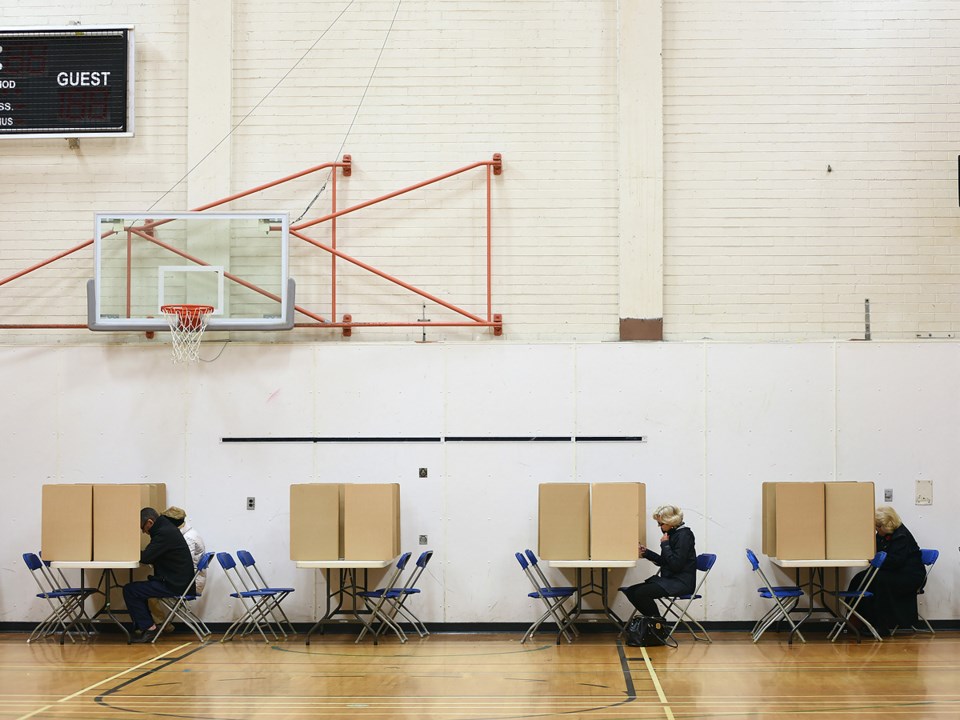The most remarkable unintended consequence of Vancouver’s city council election results was not that the Green Party scored a historic number of victories nor the presence of a record eight women among the 10 councillors elected — although both are noteworthy. But the result that could be a game changer is the colour of the council that will now represent our city, a city that is roughly made up of 45 per cent people of colour.
Yes, I got it that Green Party candidate Pete Fry, the son of Trinidadian born Liberal MP Hedy Fry, handily won a spot on council. But for the major ethnic groups in our city, people of Chinese, Indian or Filipino heritage, the representation is zero.
Don’t blame the political parties. Right, left and centre included visible minorities on their ballot. A person of Chinese heritage has run for mayor in the past two elections.
And these are groups — Chinese, Indian and Filipino — whose presence and contribution is undeniably growing. Consider Vancouver of 50 years ago when the main parades that attracted crowds may have been the PNE Parade and the Santa Claus Parade. Today, the two biggest extravaganzas are events celebrating Chinese New Year and Diwali.
Yet, as the Vancouver Sun’s Daphne Bramham pointed out, for the first time in 32 years there is not a person of Chinese ancestry on council, and it has been 46 years since there was a south Asian.
There is another fact worth noting and that is voter turnout. In Vancouver this time around, it declined to 39 per cent, and in the suburbs of Surrey (33 per cent) and Burnaby (32 per cent) it was even lower.
Which brings me to the observation that both the matter of racial inequality and voter turnout can be laid squarely at the feet of the at-large electoral system and the need for, you guessed it, a ward system of elections. British Columbia is the only jurisdiction in Canada where cities with more than 100,000 people do not have a system of civic government where people vote for their representatives by neighbourhoods or wards.
Going back to 1935 there have been six referenda in this city’s history dealing with the question of wards versus at-large, and each time the electorate was deemed to have given insufficient support to wards to justify a change.
The last effort took place in 2004 when COPE, a party that was founded 40 years earlier in large part with a commitment to bring in wards, finally assumed the majority on council. However, by the time they got to a referendum, councillors were so much at war with themselves, they fumbled the opportunity.
On the question of race and wards, look no further than the experience of folks just south of our border, and you will find many cities — cities with significant populations of African Americans and Hispanics — where under the at-large system they were shut out of civic elections. That is until they took councils to court on the grounds the system was racist. When the courts agreed and required councils to change their systems from at-large to wards (or districts), the number of African Americans and Hispanics on councils went up.
There is also a connection between wards and voter turnout, as a chubby cheeked Simon Fraser student by the name of Kennedy Stewart opined in his 1995 MA thesis.
With wards and parties competing with each other, turnout decidedly climbs. Simply put, people aren’t faced with an intimidating ballot the size of a pillow slip; rather they are given a choice of a few people from their ’hood.
Twenty three years later, Stewart is Vancouver’s mayor-elect. And while housing and the opioid crisis were the dominant issues on the campaign trail, and the composition of the current council will be difficult to manoeuvre on any issue, he says he is still determined to bring in a ward system.
Go for it, I say. Seven is a lucky number.
•••
And by the way, this is goodbye for me. This is my last column in this space. I have been most fortunate to work with some great journalists and editors at the Courier over the past 19 years and even more fortunate to have you as readers. I’ve got a book project I’ve neglected for far too long that I must get back to.
Cheers.



